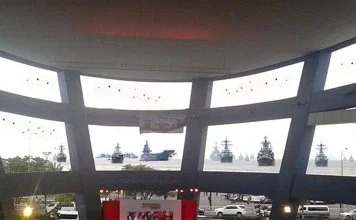A top official from the Mindanao Development Authority (MinDA) said the proposed P959 million General Santos City Airport Industrial Complex or Aerotropolis will position Region 12 as a major international gateway in Mindanao.
MinDA Undersecretary Janet Lopoz said the Aerotropolis, a major infrastructure project being pushed under the Mindanao Development Corridors will boost the competitiveness of Region 12, located in the South-Central Mindanao Development Corridor.
“The project will integrate the different points of entry in Region 12, particularly General Santos’ international airport, fishport complex, and Makar Wharf,” said Lopoz at the 50th Regular Meeting of the Regional Development Council XII at Villa Amor Hotel, held here recently.
Region 12 is composed of the four provinces of North Cotabato, South Cotabato, Sarangani Province, and Sultan Kudarat, and the five cities of Koronadal, Tacurong, General Santos, Kidapawan, and Cotabato.
The proposed Aerotropolis will develop some 200 hectares of property surrounding the General Santos airport to an integrated complex that will include business parks, amusement parks, hotels, integrated food terminal, food processing and manufacturing activities, and shopping malls.
“General Santos City has the potential to be a hub for the consolidation of products and services due to its proximity to major economic centers of Mindanao and the BIMP-EAGA,” she added.
BIMP-EAGA stands for Brunei Darussalam Indonesia Malaysia the Philippines East ASEAN Growth Area, an economic sub-grouping aimed to accelerate social and economic development of less developed areas in participating countries.
Other projects
On top of the General Santos City Airport Industrial Complex, other projects being pushed under the Mindanao Development Corridors are the Mindanao Railway System, the Davao South Marina and Industrial Park, the Davao International Airport Operations, Maintenance, and Development Project, the Davao City Sasa Port Modernization Project, and a number of major road projects connecting the South-Central Mindanao Corridor to other development corridors.
The Mindanao Development Corridors is a key spatial strategy of MinDA that will help pave the way for a connected and globally competitive Mindanao. Cited under Chapter 10 of the updated Philippine Development Plan, this strategy captures the Aquino government’s accelerated infra development agenda for Mindanao.
“We need to interconnect Mindanao for it to be efficient,” said Lopoz while adding “the corridors strategy will accelerate development and ensure aligning of infrastructure projects in Mindanao to facilitate better economic activity and a much attractive investment climate.”
The Mindanao corridors will also help position the island-region as a single, integrated economy that is able to leverage and actively participate in the BIMP-EAGA and the rest of the world.
“In the past several years, Mindanao has been experiencing an economic growth of six to seven percent, but this increase must also translate into higher incomes and more jobs,” she said.
The corridors strategy will allow for the improvement of infrastructure, establishment of connectivity, and spur the development of growth clusters within Mindanao, to achieve a balanced and inclusive growth among its regions.







